“Thirteen countries have formally asked to join and another six have asked informally. We are getting applications to join every day”, said the South African Ambassador to BRICS. While there is no doubt that India’s strained ties with Beijing impact the BRICS organisation and the proposal for a common BRICS currency may seem a pipe dream, the entry of Iran, Saudi Arabia, UAE and Indonesia into BRICS is important, since New Delhi shares close relations with all these countries. However, a mere ‘Anti-US’/anti-western posturing may not suffice as a binding factor.
Nineteen countries have recently expressed their desire to join the five-member BRICS grouping — which consists of Brazil, Russia, India and South Africa (BRICS). The group began as BRIC in 2006, with Brazil, Russia, India and China – while South Africa became a member in 2010. BRICS accounts for over one-quarter of the Global GDP and over 40% of the world’s population, nevertheless changing paradigm of BRICS is quite interesting and may have far-reaching implications.
A discussion regarding the membership of these countries will be discussed during the BRICS Foreign Ministers meeting in South Africa in June 2023. Said South Africa Ambassador to BRICS, Anil Sooklal: “What will be discussed is the expansion of BRICS and the modalities of how this will happen. Thirteen countries have formally asked to join and another six have asked informally. We are getting applications to join every day”.
Maria Zakharova, the spokeswoman for the Russian Foreign Ministry during a news briefing said that Russia has been holding discussions with other members of the grouping, regarding expansion. BRICS members have been discussing the possibility of a common currency. China is also keen to increase membership of BRICS with the aim of checking the influence of developed countries over multilateral institutions.
Also Read: The Growth Story Of ASEAN Powers: Indonesia and Malaysia
Interest of Middle Eastern countries in joining BRICS and the changing geopolitics of the Middle East
Amongst the 19 countries which have expressed the desire to join BRICS are the two Gulf nations – Saudi Arabia and the United Arab Emirates, and Iran. This is important for several reasons both in the context of the geopolitics of the Middle East as well as the global geopolitical landscape.
First, it illustrates the growing proximity not only of Iran towards China but also UAE and Saudi Arabia with China. Iran had signed a 25-year agreement with China in 2021, referred to as the “strategic cooperation pact”. Economic ties of both Gulf Arab nations – UAE and Saudi Arabia – with China have also strengthened (much to the chagrin of Washington DC). During the visit of Xi Jinping to Saudi Arabia in December 2022, the first GCC-China Summit was held.
If one were to look at the geopolitics of the Middle East, it is Beijing which had brokered the Saudi Arabia-Iran agreement – in March 2023 — through which both countries have restored diplomatic relations. Foreign Ministers of both Middle Eastern countries met on April 6, 2023, in Beijing and discussed the setting up of embassies and consulates in each other’s countries at the earliest. A joint statement issued after the meeting between Saudi Foreign Minister Prince Faisal bin Farhan Al Saud and his Iranian counterpart, Hossein Amirabdollahian stated: “The technical teams will continue coordination to examine ways of expanding cooperation including the resumption of flights and bilateral visits of official and private sector delegations and facilitating the granting of visas for the citizens of the two countries,”
Also Read: Raisi’s Visit & Growing China-Iran Relations: A Bridge Or A Threat to the West?
While both Gulf nations still share close economic and strategic relations with Washington DC, there is a clear downward slope in relations in recent months. It would be pertinent to point out, that the US had expressed its displeasure to Saudi Arabia, saying it had been kept out of the loop regarding the Saudi-Iran deal
Second, on the Russia-Ukraine conflict while Iran has predictably supported Russia, UAE and Saudi Arabia have also taken a balanced approach. Iran has initiated Rial-Rouble trade with Russia to circumvent sanctions and even sold drones to Russia (as a result of which the US imposed sanctions on Iran). OPEC+ oil producers announced oil cuts on April 2, 2023, much to the displeasure of the West. A rise in global oil prices would help Russia in weathering US-imposed sanctions in the aftermath of the Russia-Ukraine crisis. This decision was a clear reiteration of Saudi-Russia cooperation over oil pricing strategy. Saudi Arabia like many other countries has said that it was open to the idea of trading in Non-Dollar currencies.
Third, Iran and Saudi Arabia have also shown a growing interest in another China-dominated organization – Shanghai Cooperation Organization (SCO). Saudi Arabia has agreed to join SCO as a dialogue partner, while Iran will attend the 2023 SCO Summit, to be hosted by India in July 2023, as a full member.
India’s ties with Saudi Arabia, UAE and Iran
Iran, Saudi Arabia and UAE share close ties not just with China and Russia, but also with India. With Saudi Arabia and UAE, India’s economic ties have expanded and clearly moved beyond just the import of oil (India also has robust strategic ties with both Gulf nations). Only recently, the possibility of India linking its power grid with Saudi Arabia and UAE was mooted. India’s cooperation with both United Arab Emirates (UAE) and Saudi Arabia has also moved beyond the bilateral sphere.
Also Read: China’s Perspective on the US Indo-Pacific Strategy: A Scholarly View
India and Iran also share an important relationship. While India stopped the purchase of oil from Iran in 2019 due to US sanctions on Iran, the Chabahar Port (Iran) is a key component of the relationship. India has been participating in the development of the Shahid Behesti Terminal (Phase 1 of Chabahar Port) and has also been seeking to link Chabahar with the International North-South Transport Corridor (INSTC) which will connect India with Russian and Europe. An Indian firm, India Ports Global Limited, took over operations of the Chabahar Port in 2018 (both sides are looking to finalise a long-term agreement whereby India would manage Shahi Behesti Terminal for a period of 10 years)
Indonesia’s interest in BRICS and its global clout
If one were to look beyond the Middle Eastern countries, another country which has sought entry into BRICS is Indonesia. Indonesia has been walking a tightrope not just in the context of ties between the US and China but has also taken a neutral stance on the Russia-Ukraine context. Indonesian President Joko Widodo in spite of Western pressure had invited Russian President Vladimir Putin to the G20 Summit in Indonesia, in November 2022 (Indonesia was G20 Chair last year). Putin did not attend the summit, however. Widodo had also refused to supply weapons to Ukraine. The Indonesian President visited both countries in June 2022 and offered to play the role of a peacemaker between both countries. Indonesia’s proactive stance on global issues and its balanced approach would make it a valuable addition to BRICS.
Why New Delhi may not be averse to more members?
While there is no doubt that India’s strained ties with Beijing impact the BRICS organisation and in the current climate the proposal for a common BRICS currency may seem a pipe dream, the entry of Iran, Saudi Arabia, UAE and Indonesia are important, since New Delhi shares close relations with all these countries.
In conclusion, given the current geopolitical situation, it is important to be realistic in terms of expectations from BRICS, but the entry of Gulf Countries, Iran and Indonesia into the organisation would be important since they would prevent excessive domination by China. While there can be collaboration on several issues amongst BRICS members, mere ‘Anti-US’/anti-western posturing is not sufficient as a binding factor.
Disclaimer: The views expressed in this article are of the author solely. TheRise.co.in neither endorses nor is responsible for them. Reproducing this content without permission is prohibited.
About the author
Tridivesh Singh Maini is a New Delhi-based Policy Analyst. He is faculty member of OP Jindal Global University, Sonepat, Haryana.

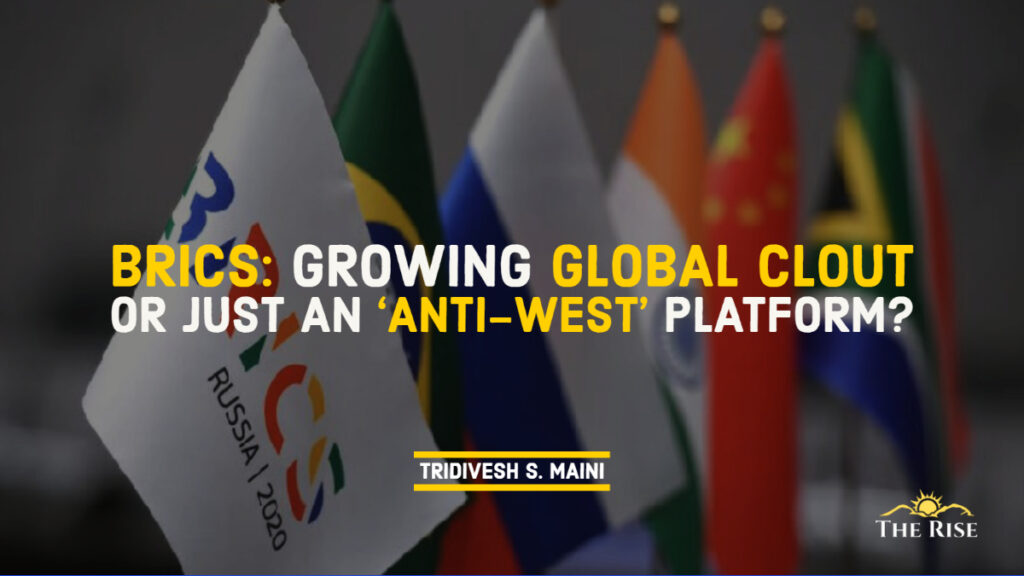


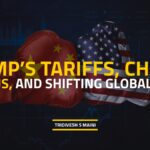





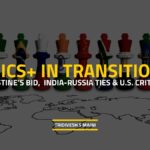

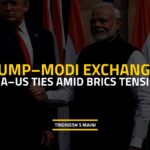
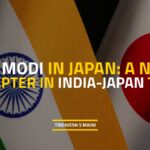




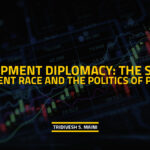


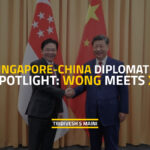


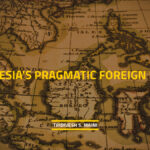

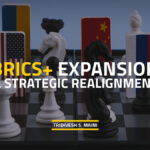





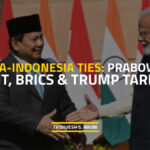



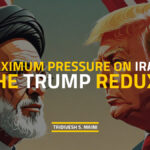

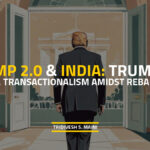
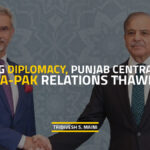





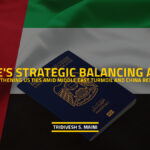
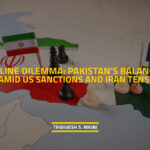
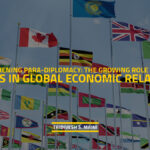

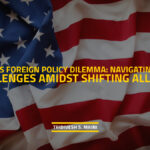
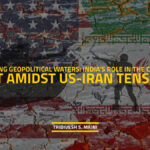
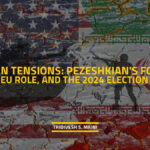



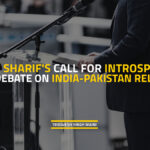
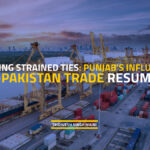


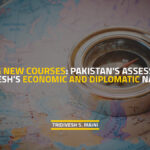

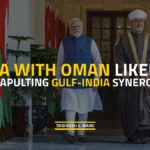


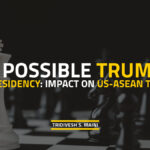

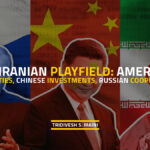
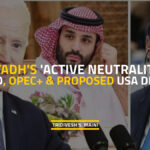
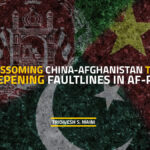
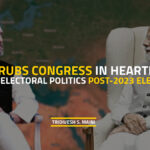
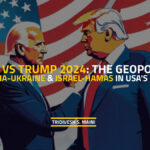
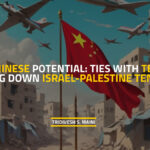



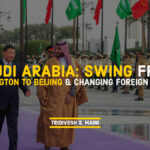


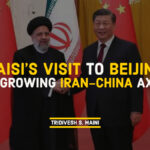



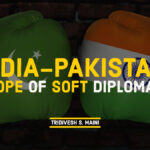



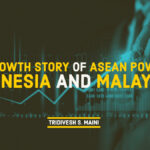


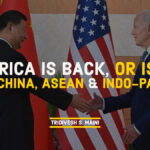
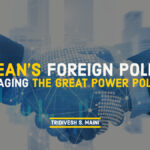
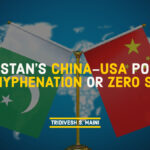
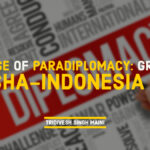

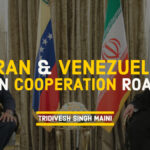

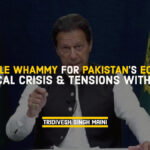
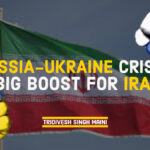
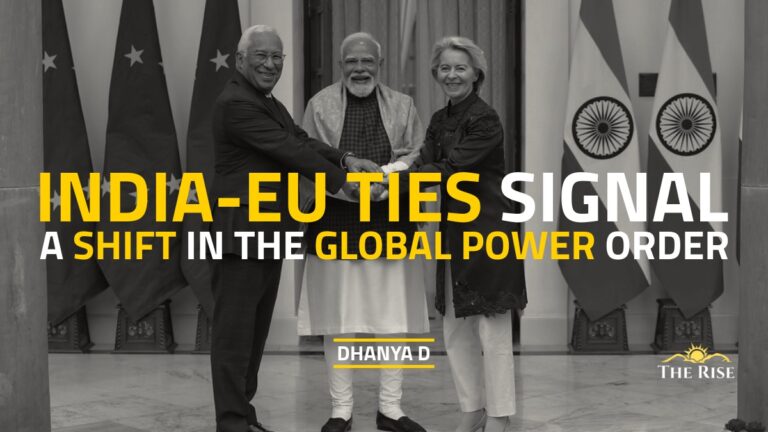
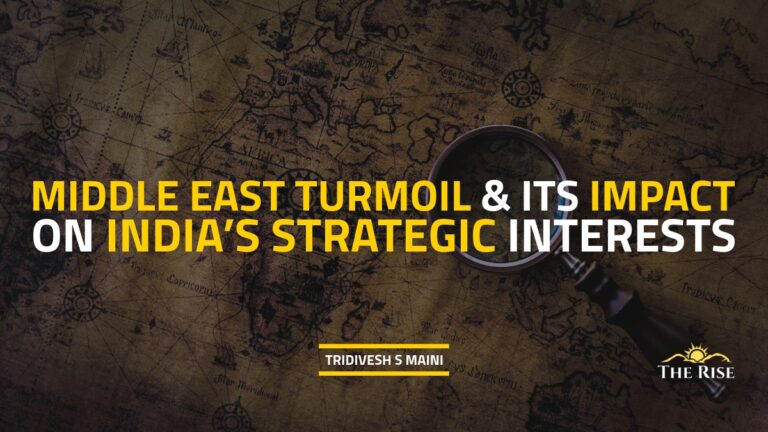
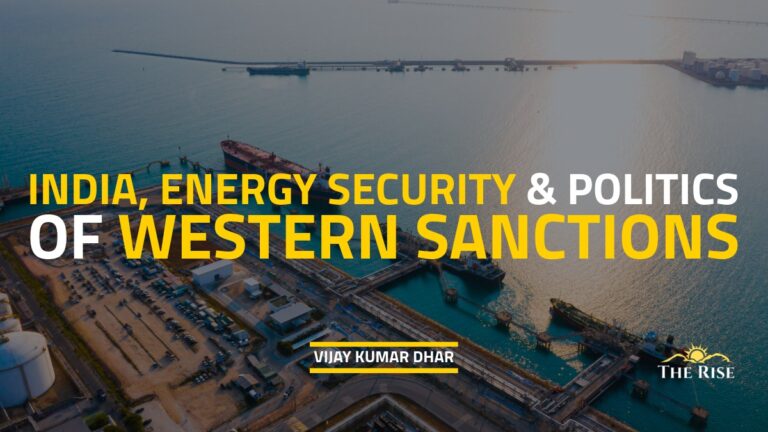

Pingback: FCRA: The Restricting Law of a Nation-State, that is, Bharat
Pingback: Saudi Arabia and OPEC interventions - TheRise.co.in
Pingback: India-France In Transcaucasia- A Part Of The Problem Or A Solution - TheRise.co.in